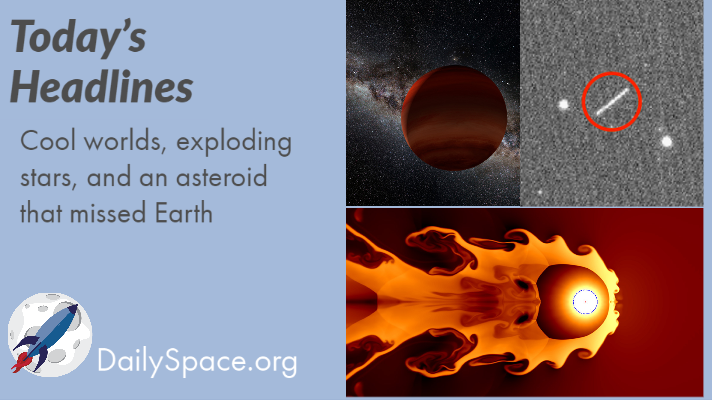
Aug 20, 2020 | Asteroids, Citizen Science, Daily Space, Earth, JAXA, Supernovae
Join us today as we look at how citizen science helped discover 100 cool worlds nearby. Then we examine evidence that exploding stars may have contributed to a mass extinction on Earth. Speaking of mass extinctions, an asteroid narrowly missed our planet last weekend. Because 2020.
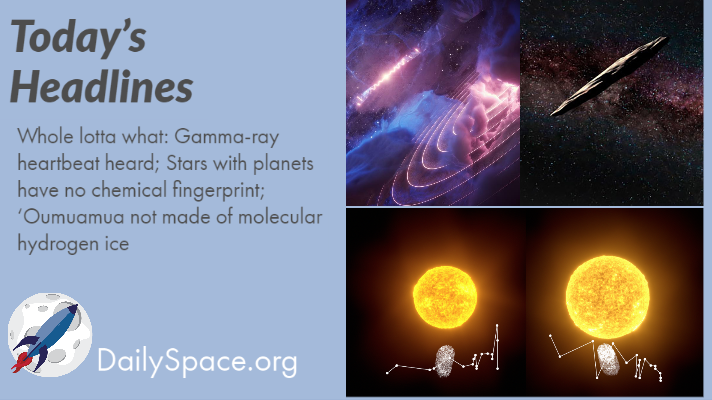
Aug 18, 2020 | Asteroids, Daily Space, Exoplanets, Quasar
Join us today for a lot of unsatisfying news. First, two objects appear to be pulsing in gamma-rays at the same pace, but they’re 100 light years apart. Next, it turns out that stars with planets look chemically like any other star. And finally, our interstellar visitor, ‘Oumuamua, is NOT made of molecular hydrogen ice.
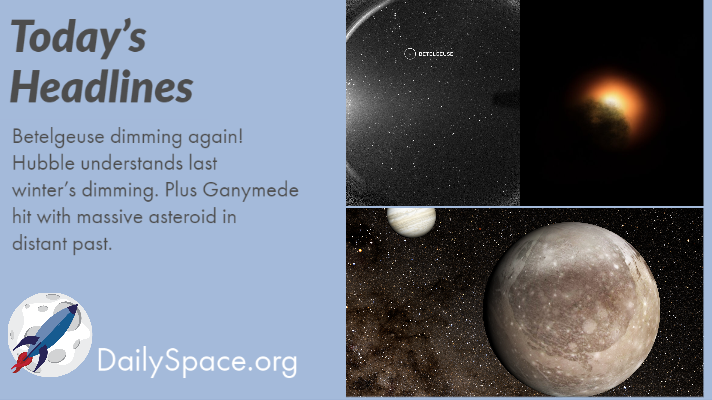
Aug 17, 2020 | Daily Space, Our Solar System, Stars
Join us today as we take another look at the dimming antics of Betelgeuse, which is up to those old tricks again. Research from Hubble helped understand last winter’s event. And Ganymede is covered with one massive crater as a result of a giant impact four billion years ago.
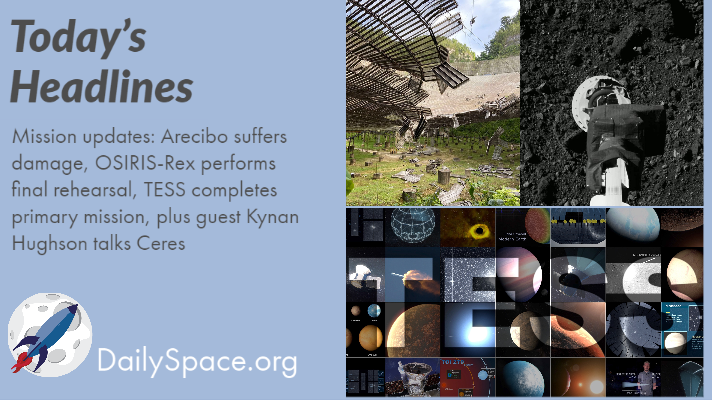
Aug 13, 2020 | Asteroids, Bennu Mapper, Daily Space, Exoplanets, Guest Interview, Observatories, OSIRIS-REx, Our Solar System, Planets
Join us today as we share some mission updates, good and bad. The bad: Arecibo Observatory suffered damage from a snapped cable. The good: OSIRIS-Rex performed a final dress rehearsal for taking a sample of Bennu and NASA’s TESS finished its primary mission. Plus, we’re joined by postdoc Kynan Hughson to talk about this week’s Ceres news!
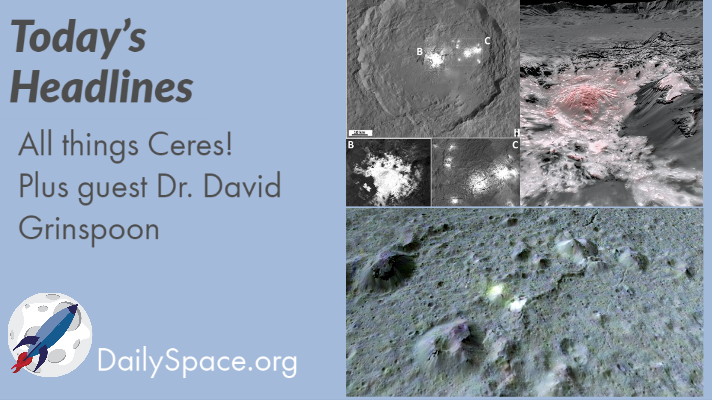
Aug 11, 2020 | Asteroids, Daily Space
Join us today as we cover all the news about Ceres that culminated in SEVEN papers, revealing the existence of a salty subsurface ocean and active cryovolcanism.
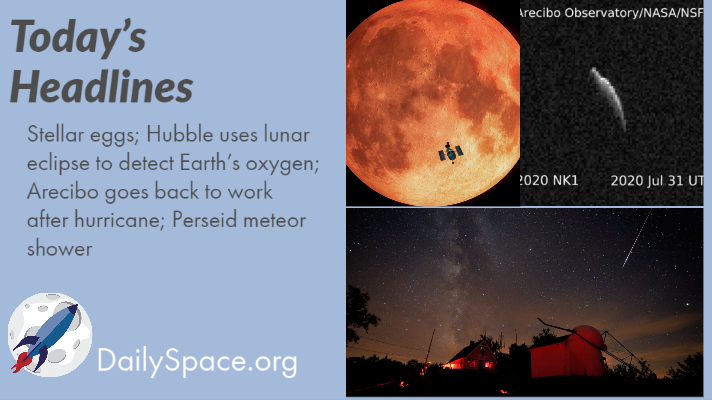
Aug 10, 2020 | Astrobiology, Daily Space, Earth, ESA, Moon, Observatories, Star Forming Region
Join us today for news about the evolution of stellar eggs. Additionally, Hubble takes advantage of a lunar eclipse to probe our atmosphere. Then we celebrate Arecibo reopening after Hurricane Isaias and doing more science. Plus it’s time for the Persieds!








 We record most shows live, on Twitch. Follow us today to get alerts when we go live.
We record most shows live, on Twitch. Follow us today to get alerts when we go live.